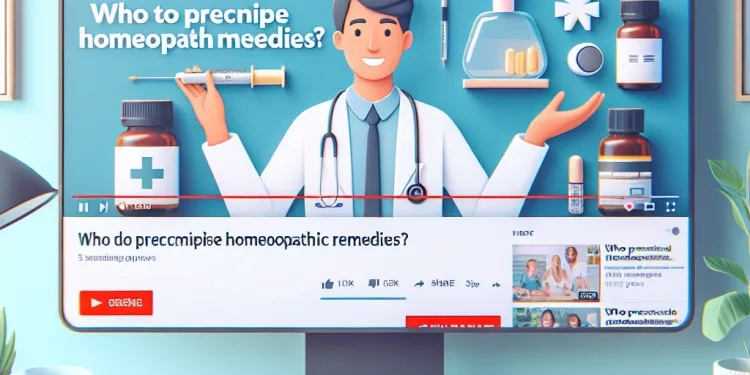
Find Help
More Items From Ergsy search
-

Do homeopathic medicines contain any active ingredients?
Relevance: 100%
-

Are homeopathic medicines safe?
Relevance: 79%
-

How are homeopathic medicines made?
Relevance: 72%
-

What is Homeopathy and Homeopathic Medecine?
Relevance: 55%
-

What is the active ingredient in Mounjaro?
Relevance: 43%
-

How can I find a qualified homeopath in the UK?
Relevance: 43%
-

What is the active ingredient in Wegovy?
Relevance: 42%
-

Are homeopathic treatments covered by the NHS?
Relevance: 42%
-

What is the active ingredient in Wegovy tablets?
Relevance: 40%
-

How does homeopathy differ from conventional medicine?
Relevance: 40%
-

Who can prescribe homeopathic remedies?
Relevance: 39%
-

What is the principle of 'like cures like'?
Relevance: 29%
-

Can homeopathy treat all medical conditions?
Relevance: 29%
-

How long has Botox been used in medicine?
Relevance: 27%
-

What ingredients are typically found in caffeine pouches?
Relevance: 27%
-

Is homeopathy widely used in the UK?
Relevance: 27%
-

Who founded homeopathy?
Relevance: 27%
-

Can fake weight loss drugs have harmful ingredients?
Relevance: 27%
-

How is ketamine used in veterinary medicine?
Relevance: 26%
-

Medicines of the heart
Relevance: 25%
-

Is it necessary to stop conventional treatment when starting homeopathy?
Relevance: 24%
-

What are some common conditions treated with homeopathy?
Relevance: 24%
-

What are generic medecines?
Relevance: 24%
-

Do fake drugs often have missing or incorrect ingredient lists?
Relevance: 23%
-

Are there any scientific studies supporting homeopathy?
Relevance: 21%
-

The Benefits of Family Activities
Relevance: 20%
-

When are mosquitoes most active in the UK?
Relevance: 19%
-

When is it safe to return to normal activities after a concussion?
Relevance: 19%
-

Are activities provided for residents in care homes?
Relevance: 18%
-

Do I need a different SPF for water-related activities?
Relevance: 17%
-

How important is physical activity in preventing obesity?
Relevance: 17%
-

What is active surveillance in prostate cancer treatment?
Relevance: 17%
-

Can SEND children access extracurricular activities?
Relevance: 17%
-

How do health officials monitor H3N2 activity?
Relevance: 16%
-

Do I need additional cover for adventure sports or activities?
Relevance: 16%
-

What is drug manufacturing?
Relevance: 16%
-

Staying Active: National Health Campaigns Promoting Physical Well-being
Relevance: 16%
-

How can I check recent login activity on my email account?
Relevance: 16%
-

When is it safe to return to normal activities after a concussion?
Relevance: 15%
-

How important is physical activity for older adults picking new hobbies?
Relevance: 15%
Do Homeopathic Medicines Contain Any Active Ingredients?
Understanding Homeopathy
Homeopathy is a system of alternative medicine founded in the late 18th century by Samuel Hahnemann. It is based on the principle of “like cures like,” where substances that may cause symptoms in a healthy individual are used in very small amounts to treat similar symptoms in an ill person. Homeopathy is popular in the UK and some other countries, but its effectiveness is a subject of debate in the scientific community.
The Concept of Dilution and Potentization
The preparation of homeopathic remedies involves a process known as potentization, which includes repeated dilutions of the substance in alcohol or water, followed by succussion (vigorous shaking). The dilution process often results in formulations where the original substance is present in extremely minute amounts, sometimes to the point where no molecules of the original substance remain. The idea is that with each dilution, the “essence” or “memory” of the original substance is retained, although scientific evidence to support this theory is lacking.
Active Ingredients in Homeopathic Medicines
In conventional terms, an active ingredient is a component that is biologically active within a medication. Critics of homeopathy argue that due to the extreme dilution process, homeopathic remedies often contain little to no active ingredients in a chemical sense. For example, a 30C potency means the original substance has been diluted 30 times at a ratio of 1:100, often leaving virtually no trace of the original ingredient. Therefore, any effects attributed to homeopathic remedies are often considered to be due to the placebo effect rather than any pharmacological action.
Regulation and Perception in the UK
In the United Kingdom, homeopathic medicines are regulated by the Medicines and Healthcare products Regulatory Agency (MHRA). While these remedies can be legally sold and marketed, they must meet specific safety and quality standards. The National Health Service (NHS) no longer funds homeopathy because of a lack of empirical evidence supporting its efficacy, yet many people in the UK continue to use and support homeopathy as part of their personal healthcare practices.
Conclusion
While homeopathic medicines are widely used in the UK, they typically do not contain active ingredients in a traditional scientific sense due to high dilution. The debate about their effectiveness continues, with perspectives ranging from viewing them as useful complementary treatments to considering them as no more effective than placebos. As always, it's important for individuals to consult healthcare professionals when considering homeopathic or any other medical treatments.
Do Homeopathic Medicines Have Active Ingredients?
What is Homeopathy?
Homeopathy is a type of medicine that started over 200 years ago. A doctor named Samuel Hahnemann created it. The idea is to treat sick people with tiny amounts of stuff that can make healthy people feel sick. Homeopathy is popular in the UK and other places. However, scientists do not all agree if it really works.
How Are Homeopathic Medicines Made?
To make homeopathic medicines, you mix the original stuff with lots of water or alcohol. You shake it a lot. This process is called potentization. After so much mixing, there is often almost none of the original stuff left. Some people think the water remembers the original stuff, but science has not proven this.
Are There Active Ingredients?
Normally, an active ingredient is what makes a medicine work. People who don't believe in homeopathy say that there's barely any active ingredient left because of the mixing. For example, in a 30C remedy, the stuff is mixed 30 times and almost nothing is left. This is why many think homeopathic cures might only work if you believe they will.
Homeopathy Rules in the UK
In the UK, homeopathic medicines must follow rules for safety. These rules are from the Medicines and Healthcare products Regulatory Agency (MHRA). The NHS does not pay for homeopathy because there is no strong proof it works, but many people still like it and use it for their health.
In Summary
Homeopathic medicines do not usually have active ingredients because they are mixed so much. People have different opinions about if they work or not. Some think they help, while others say they are like sugar pills. It's always a good idea to talk to a doctor before using any kind of medicine.
Frequently Asked Questions
Do homeopathic medicines contain any active ingredients?
Homeopathic medicines are prepared through a process called potentization, which involves diluting an active ingredient many times. This often results in a final product where no molecules of the original substance remain.
How are homeopathic medicines regulated in the UK?
In the UK, homeopathic medicines are regulated by the Medicines and Healthcare products Regulatory Agency (MHRA). They must be registered or authorised to be marketed.
Can homeopathic medicines be used alongside conventional treatments?
Yes, many people use homeopathic remedies alongside conventional treatments, but it's important to inform healthcare providers to avoid potential interactions or conflicts.
Are homeopathic medicines safe?
Homeopathic medicines are generally considered safe when used as directed, although they may not be effective for serious health conditions. They are often free of side effects due to their high dilution levels.
What is the principle behind homeopathy?
Homeopathy is based on the principle of 'like cures like,' suggesting that substances causing symptoms in a healthy person can, when administered in highly diluted amounts, treat similar symptoms in an ill person.
Do homeopathic medicines interact with other medications?
There is generally a low risk of interaction with other medications due to the high dilution of homeopathic remedies, but patients should always consult their healthcare provider.
Can children use homeopathic medicines?
Homeopathic remedies are often used for children, but it's crucial to consult a healthcare professional to ensure safety and appropriateness.
How is a homeopathic remedy chosen?
A homeopath selects a remedy based on the individual's specific symptoms and health profile, considering both physical and emotional conditions.
Can pregnant women take homeopathic medicines?
Many homeopathic remedies are considered safe during pregnancy, but it is essential to seek advice from a qualified healthcare provider before starting any treatment.
Are there any scientific studies supporting homeopathy?
There are some studies with mixed results, but homeopathy remains a contentious subject in the scientific community, with many experts calling for more rigorous research to determine its efficacy.
What are common forms of homeopathic medicines?
Common forms include tablets, granules, liquid drops, creams, and ointments, all of which contain highly diluted substances.
What conditions is homeopathy commonly used for?
Homeopathy is commonly used for conditions like allergies, colds, flu, stress, and skin conditions, though its effectiveness varies.
How long does it take to see results with homeopathic treatments?
The time varies depending on the individual and the condition being treated. Some people report immediate improvement, while others may take longer.
Where can one purchase homeopathic medicines in the UK?
Homeopathic medicines can be purchased at pharmacies, health shops, and online, but it's essential to buy from reputable sources.
Who can prescribe homeopathic medicines?
In the UK, homeopathic medicines can be prescribed by registered homeopaths, as well as some doctors and healthcare practitioners trained in homeopathy.
Do homeopathic medicines have things that make them work?
Homeopathic medicines are made in a special way called potentization. This means the ingredient is mixed with water or alcohol many times. In the end, there is usually no part of the original ingredient left.
Using pictures or videos can help you learn more. You can also ask someone to read this to you. Using apps that read text out loud might help too!
How does the UK check homeopathic medicines?
Homeopathic medicines in the UK are checked to make sure they are safe for people to use. There are rules and guidelines to help with this. These medicines need to show they are safe and made in the right way.
If you want to learn more, you can:
- Ask a doctor or pharmacist.
- Look for books or websites that explain homeopathy.
In the UK, there is a group called the Medicines and Healthcare products Regulatory Agency (MHRA). They check homeopathic medicines to make sure they are safe. These medicines need to be approved before they can be sold.
Can you use homeopathic medicines with regular treatments?
Yes, lots of people use special treatments called homeopathic remedies along with their regular medicine. But it’s important to tell your doctor or nurse. This way, they can make sure everything works well together and you stay safe.
Are homeopathic medicines safe?
Homeopathic medicines are a type of treatment some people use. They are made from natural things like plants and minerals. Some people think they can help you feel better. But not everyone agrees that they work.
Here are some ways to decide if homeopathic medicines are safe for you:
- Talk to your doctor. They can tell you if it is safe for you.
- Read the label. Make sure you understand what is in the medicine.
- Ask a trusted adult or friend for help if you don't understand something.
It's important to be careful with any medicine you take. Always check with a grown-up or your doctor first.
Homeopathic medicines are usually safe if you use them the right way. But they might not work for big health problems. They often don't cause side effects because they are very diluted (mixed with a lot of water).
Here are some tools and tips to help you understand:
- Ask a Doctor: Talk to your doctor if you are unsure about using homeopathic medicines.
- Use a Dictionary: Look up words that are hard to understand.
- Speak Out Loud: Reading out loud can help you understand better.
- Work with a Buddy: Have someone help you read and understand the text.
What is homeopathy?
Homeopathy is a way to help make you feel better.
It uses tiny amounts of natural things, like plants and minerals.
People think homeopathy helps the body heal itself.
Homeopathy believes if a big amount of something makes you sick, a tiny amount can help you feel better.
Here are some tips to learn more:
- Ask a grown-up to help you understand.
- Look at pictures and videos about homeopathy.
- Try using simple words to explain it to a friend.
Homeopathy is a way of treating people. It works by using tiny amounts of something that causes symptoms in a healthy person, to help an ill person with the same symptoms.
Do homeopathic medicines mix with other medicines?
Homeopathic remedies are usually very weak, so they don’t often cause problems with other medicines. But it is important to talk to your doctor before using them.
Can kids use homeopathy medicines?
Homeopathy is a type of natural medicine. It uses very small amounts of plants and minerals to help people feel better.
Children can use homeopathy, but it is important to talk to a doctor first. The doctor can tell you if it is safe for your child.
Here are some tips for using homeopathy:
- Always tell the doctor about any other medicines your child takes.
- Start with a small amount to see how your child feels.
- Keep a diary of how your child feels after taking the medicine.
It's always good to ask your doctor or a healthcare professional if you are unsure.
People use homeopathic remedies for kids. But, it is important to talk to a doctor first. This makes sure it is safe and okay to use.
How do you pick a homeopathic medicine?
Homeopathic medicine is a special kind of medicine made from plants, animals, or minerals. To pick the right one, you need to look at how you feel and your symptoms. A homeopathic doctor or expert can help you choose.
They will ask you questions about how you feel. This helps them find the best medicine for you. Sometimes, it might take a few tries to find the right one.
Here are some tips to remember:
- Tell the doctor all about your symptoms.
- Be open about how you are feeling.
- Be patient; finding the right medicine can take time.
Tools that might help:
- Talking with a homeopathic expert.
- Keeping a diary of your symptoms.
- Using a simple guidebook about homeopathy.
A homeopath is a person who helps people feel better. They choose a special medicine for each person. They look at how the person feels both in their body and their mind.
Can pregnant women use homeopathic medicines?
If a woman is going to have a baby, can she use homeopathic medicines?
Homeopathic medicines are made from plants and minerals. They are natural, but it is still important to be careful.
Before taking any medicine, it is a good idea for pregnant women to talk to a doctor or a midwife. These helpers know what is safe for the mom and the baby.
Here are some tips:
- Ask a doctor or a pharmacist about the medicine.
- Read the label on the medicine bottle carefully.
- Do not use too much of the medicine.
Using these tips can keep the mom and baby safe.
Many homeopathic medicines are usually safe to use when you are pregnant. But it is very important to ask a doctor or a nurse for advice before you start using any medicine.
Do scientists say homeopathy works?
Some people use homeopathy when they are sick. But do scientists think it works? Here is what you need to know:
- Homeopathy is a way some people try to feel better using tiny amounts of natural things.
- Scientists do lots of tests to see if something actually works.
- Many scientists have checked homeopathy. Most did not find it helps like medicine.
- Some people feel better with homeopathy, but it could be because they believe it will help.
If you are curious about this, you might want to:
- Ask a doctor or expert for advice.
- Read books or watch videos made for kids about how medicines work.
- Use tools like audiobooks if reading is hard.
There are different opinions about homeopathy. Some studies show different results. Many scientists think homeopathy is a topic that people argue about. They want better research to see if it really works.
What are common types of homeopathic medicines?
Homeopathic medicines are special kinds of treatments. They come in different types. Here are some common ones:
- Pills: Small, round tablets you can swallow.
- Liquids: Medicine in a bottle that you can drink or drop onto your tongue.
- Tablets: Flat, round pieces you can chew or let dissolve in your mouth.
- Pellets: Tiny, round pills that melt in your mouth.
If you find reading hard, try these tips:
- Use your finger to follow words as you read.
- Read out loud to help understand better.
- Ask someone to read with you or explain things.
These can help make reading easier and more fun!
There are different types. These are tablets, granules, liquid drops, creams, and ointments. They all have very tiny amounts of special substances in them.
What health problems do people use homeopathy for?
Homeopathy is a type of medicine. People often use it for:
- Colds and flu (when you feel sick like with a runny nose or cough)
- Headaches (when your head hurts)
- Allergies (like when you sneeze a lot from dust or pollen)
- Stress (when you feel worried or upset)
If you want to learn more or need help:
- Ask a grown-up or friend to explain
- Use pictures to help understand
- Try listening to a story about it
People often use homeopathy to help with things like allergies, colds, flu, stress, and skin problems. Sometimes it works, but not always.
How long until homeopathic treatments work?
Homeopathic treatments are natural medicines.
They work differently for everyone. Some people might feel better in a few days. Others might need more time.
If you try homeopathy, be patient. It can take a little while.
Tools to help you:
- Keep a diary. Write how you feel each day.
- Ask a friend for support.
- Talk to your doctor if you have questions.
People take different amounts of time to get better. Some people feel better right away. Others take more time.
Where can you buy homeopathic medicine in the UK?
You can buy homeopathic medicine from:
- Health and wellness shops
- Some pharmacies
- Online stores
Ask a friend or family member to help if you need it. You can also use a computer or phone to look for stores online where you can shop.
You can buy homeopathic medicine at drug stores, health shops, and on the internet. Make sure you buy from places you can trust.
Who can give homeopathic medicines?
Homeopathic medicines can be given by special doctors called homeopaths. They study homeopathy and know how to use these medicines safely.
If you want homeopathic medicine, you can speak to a homeopath for advice.
It is important to talk to a grown-up or a doctor before taking any medicine.
In the UK, special medicines called homeopathic medicines can be given to people. These medicines are given by people who are trained in homeopathy. They can be homeopaths or some doctors and other healthcare workers.
Useful Links
This website offers general information and is not a substitute for professional advice.
Always seek guidance from qualified professionals.
If you have any medical concerns or need urgent help, contact a healthcare professional or emergency services immediately.
Some of this content was generated with AI assistance. We’ve done our best to keep it accurate, helpful, and human-friendly.
- Ergsy carfully checks the information in the videos we provide here.
- Videos shown by Youtube after a video has completed, have NOT been reviewed by ERGSY.
- To view, click the arrow in centre of video.
- Most of the videos you find here will have subtitles and/or closed captions available.
- You may need to turn these on, and choose your preferred language.
- Go to the video you'd like to watch.
- If closed captions (CC) are available, settings will be visible on the bottom right of the video player.
- To turn on Captions, click settings .
- To turn off Captions, click settings again.
More Items From Ergsy search
-

Do homeopathic medicines contain any active ingredients?
Relevance: 100%
-

Are homeopathic medicines safe?
Relevance: 79%
-

How are homeopathic medicines made?
Relevance: 72%
-

What is Homeopathy and Homeopathic Medecine?
Relevance: 55%
-

What is the active ingredient in Mounjaro?
Relevance: 43%
-

How can I find a qualified homeopath in the UK?
Relevance: 43%
-

What is the active ingredient in Wegovy?
Relevance: 42%
-

Are homeopathic treatments covered by the NHS?
Relevance: 42%
-

What is the active ingredient in Wegovy tablets?
Relevance: 40%
-

How does homeopathy differ from conventional medicine?
Relevance: 40%
-

Who can prescribe homeopathic remedies?
Relevance: 39%
-

What is the principle of 'like cures like'?
Relevance: 29%
-

Can homeopathy treat all medical conditions?
Relevance: 29%
-

How long has Botox been used in medicine?
Relevance: 27%
-

What ingredients are typically found in caffeine pouches?
Relevance: 27%
-

Is homeopathy widely used in the UK?
Relevance: 27%
-

Who founded homeopathy?
Relevance: 27%
-

Can fake weight loss drugs have harmful ingredients?
Relevance: 27%
-

How is ketamine used in veterinary medicine?
Relevance: 26%
-

Medicines of the heart
Relevance: 25%
-

Is it necessary to stop conventional treatment when starting homeopathy?
Relevance: 24%
-

What are some common conditions treated with homeopathy?
Relevance: 24%
-

What are generic medecines?
Relevance: 24%
-

Do fake drugs often have missing or incorrect ingredient lists?
Relevance: 23%
-

Are there any scientific studies supporting homeopathy?
Relevance: 21%
-

The Benefits of Family Activities
Relevance: 20%
-

When are mosquitoes most active in the UK?
Relevance: 19%
-

When is it safe to return to normal activities after a concussion?
Relevance: 19%
-

Are activities provided for residents in care homes?
Relevance: 18%
-

Do I need a different SPF for water-related activities?
Relevance: 17%
-

How important is physical activity in preventing obesity?
Relevance: 17%
-

What is active surveillance in prostate cancer treatment?
Relevance: 17%
-

Can SEND children access extracurricular activities?
Relevance: 17%
-

How do health officials monitor H3N2 activity?
Relevance: 16%
-

Do I need additional cover for adventure sports or activities?
Relevance: 16%
-

What is drug manufacturing?
Relevance: 16%
-

Staying Active: National Health Campaigns Promoting Physical Well-being
Relevance: 16%
-

How can I check recent login activity on my email account?
Relevance: 16%
-

When is it safe to return to normal activities after a concussion?
Relevance: 15%
-

How important is physical activity for older adults picking new hobbies?
Relevance: 15%


